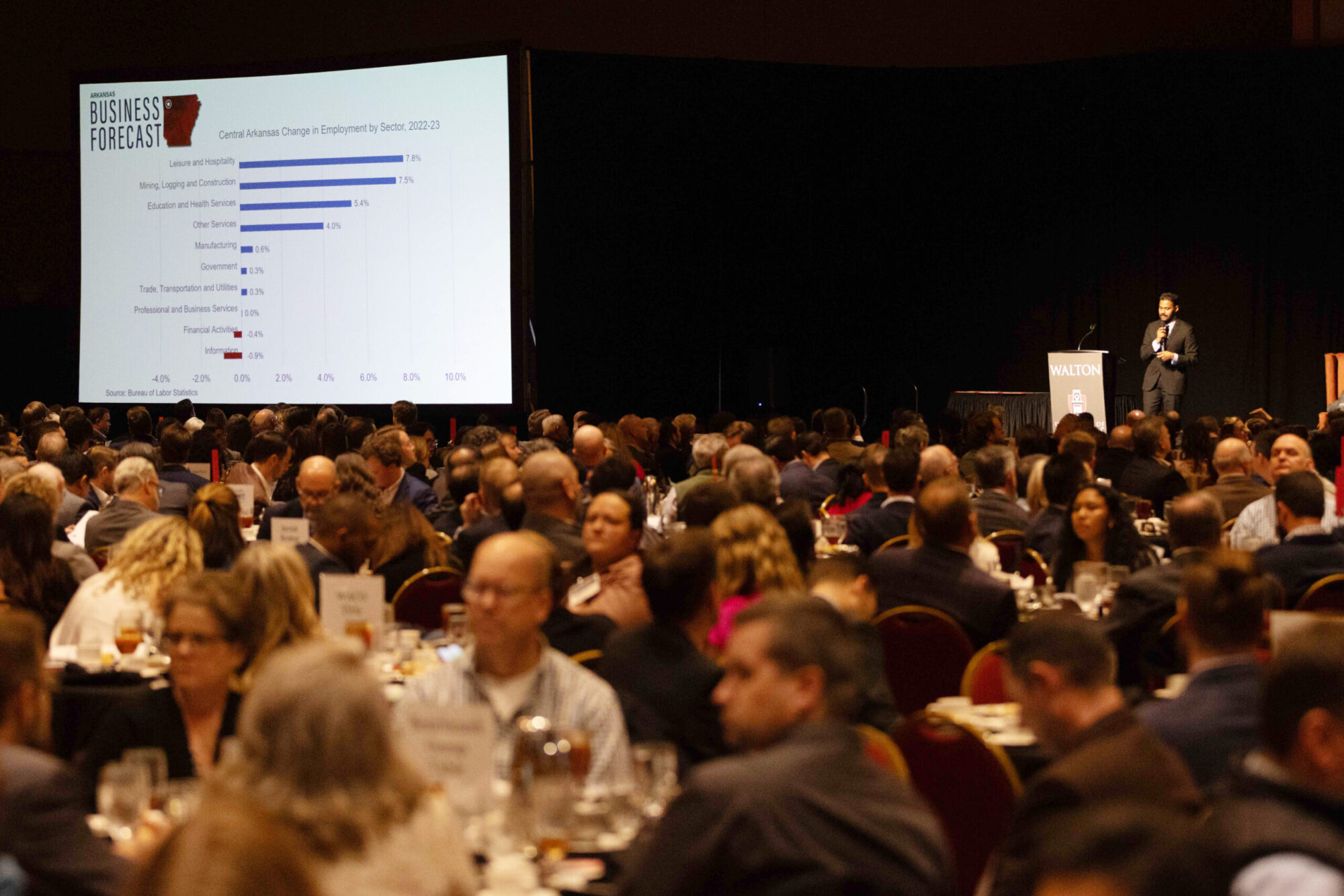A growing population, flourishing construction and hospitality industries and other positive trends across the country and the world are likely to keep Northwest Arkansas in good economic shape over the next year, several experts told a crowd of hundreds of business and civic leaders in Rogers last week.
As is typically the case, NWA also shines among the different regions of Arkansas, accounting for most of the state’s new jobs and outpacing the rest of the state with a quickly growing labor force.
“Last year we had a good year; this year we’ll have an average year,” said Mervin Jebaraj, director of the Center for Business and Economic Research at the University of Arkansas Walton College of Business. NWA added around 10,000 jobs from 2022 to 2023, and he forecast more than 5,000 more would come this year, especially in construction, hotels and restaurants and even car washes.
“Our population growth has been fairly stellar,” he added, with around 36 more people per day calling the region home.
Jebaraj shared his predictions during the Walton College’s 30th annual Arkansas Business Forecast Luncheon on Friday at the Rogers Convention Center, where he joined Gregory Daco, chief economist at EY, and Ellen Zentner, chief U.S. economist with Morgan Stanley. Each year the forecast luncheon brings in experts to take stock of international, national and local economic trends and sketch out the next 12 months.
The three speakers broadly agreed on the overall picture: decent, not outstanding, but certainly not the recession that many of their fellow economists feared last year. Unemployment remains low, lay-offs are narrow rather than widespread, and inflation seems to have been tamed for now, Daco said.
“Growth is slowing but not falling off a cliff, and I think it’s that not falling off a cliff that’s most important,” Zentner told the crowd, adding that lower federal interest rates are likely but cuts might still be months away. “We don’t think they’re in a hurry.”
Jebaraj noted that many, though not all, of the tech workers who came to the region during the pandemic have left again, recalled to their employers’ offices. He also pointed to housing affordability, with costs still rising but at a slower pace.
Both trends have been major priorities for the Northwest Arkansas Council, particularly for its Groundwork workforce housing program and Life Works Here outreach campaign.
“It remains a concern here in Northwest Arkansas” Jebaraj said of home prices.
























